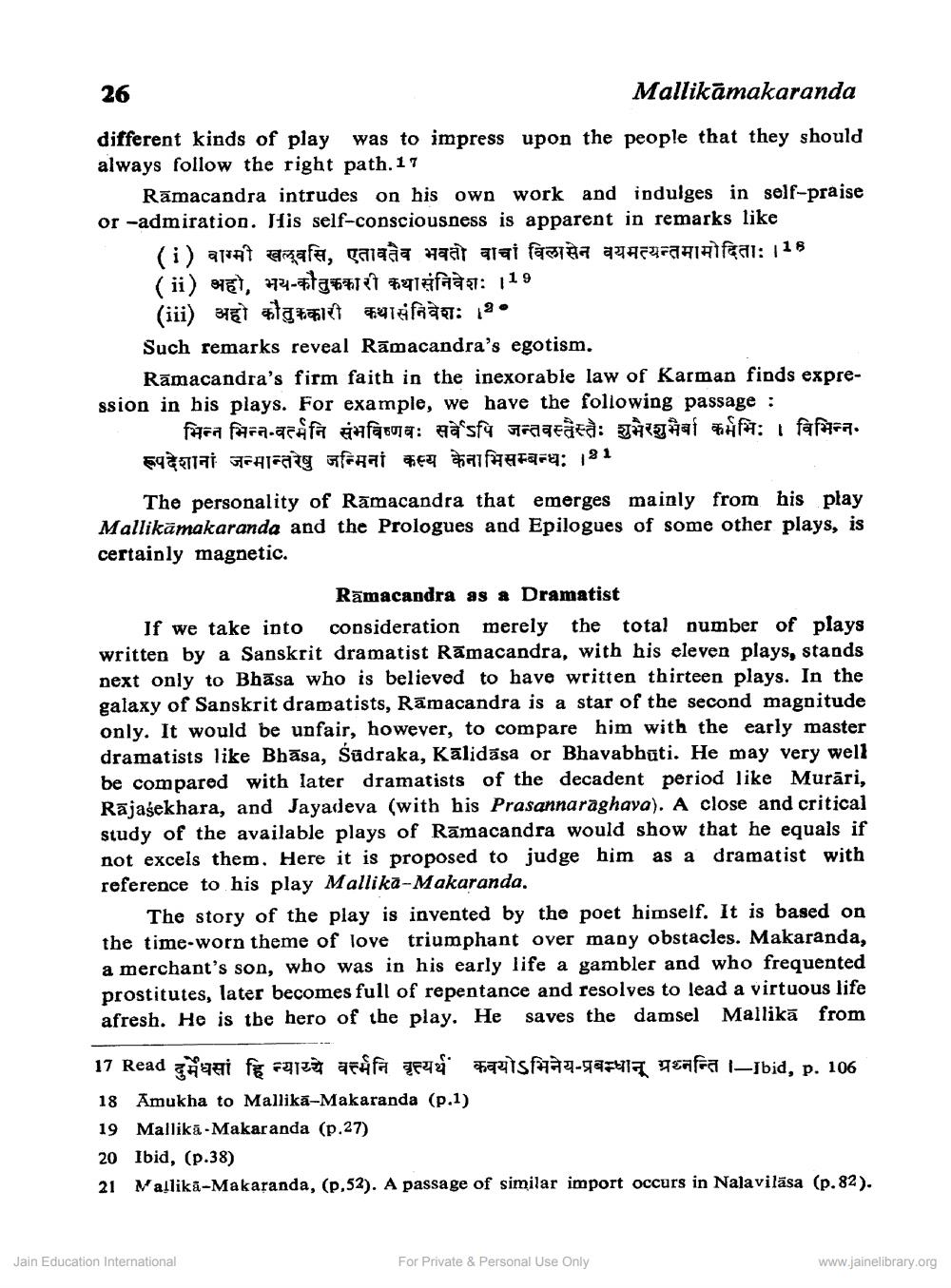________________
26
Mallikamakaranda
different kinds of play was to impress upon the people that they should always follow the right path. 17
Ramacandra intrudes on his own work and indulges in self-praise or admiration. His self-consciousness is apparent in remarks like
(i) वाग्मी खदवसि एतावतेव भवतो वाचां विलासेन वयमत्यन्तमामोदिताः । 28 (ii) अहो, भय - कौतुककारी कथासंनिवेशः 119 (iii) अहो कौतुककारी कथासंनिवेशः •
120
Such remarks reveal Rämacandra's egotism.
Ramacandra's firm faith in the inexorable law of Karman finds expression in his plays. For example, we have the following passage :
भिन्न भिन्न वर्त्मनि संभविष्णवः सर्वेऽपि जन्तवस्तेस्तैः शुभैरशमेव कर्मभि: । विभिन्न. रूपदेशानां जन्मान्तरेषु जन्मिन कस्य केनाभिसम्बन्धः 191
The personality of Ramacandra that emerges mainly from his play Mallikāmakaranda and the Prologues and Epilogues of some other plays, is certainly magnetic.
Ramacandra as a Dramatist
If we take into consideration consideration merely the merely the total number of plays written by a Sanskrit dramatist Ramacandra, with his eleven plays, stands next only to Bhasa who is believed to have written thirteen plays. In the galaxy of Sanskrit dramatists, Ramacandra is a star of the second magnitude only. It would be unfair, however, to compare him with the early master dramatists like Bhasa, Śadraka, Kalidasa or Bhavabhati. He may very well be compared with later dramatists of the decadent period like Murari, Rajasekhara, and Jayadeva (with his Prasannaraghava). A close and critical study of the available plays of Ramacandra would show that he equals if not excels them. Here it is proposed to judge him as a dramatist with reference to his play Mallika-Makaranda.
The story of the play is invented by the poet himself. It is based on the time-worn theme of love triumphant over many obstacles. Makaranda, a merchant's son, who was in his early life a gambler and who frequented prostitutes, later becomes full of repentance and resolves to lead a virtuous life afresh. He is the hero of the play. He saves the damsel Mallika from
17 Read दुर्मेधसां हि न्याय्ये वर्त्मनि वृत्यर्थं कवयोऽभिनेय-प्रबन्धान् प्रथमन्ति । Jbid, p. 106
18 Amukha to Mallika-Makaranda (p.1)
19 Mallika-Makaranda (p.27)
20 Ibid, (p.38)
21 Mallika-Makaranda, (p,52). A passage of similar import occurs in Nalaviläsa (p. 82).
Jain Education International
For Private & Personal Use Only
www.jainelibrary.org




